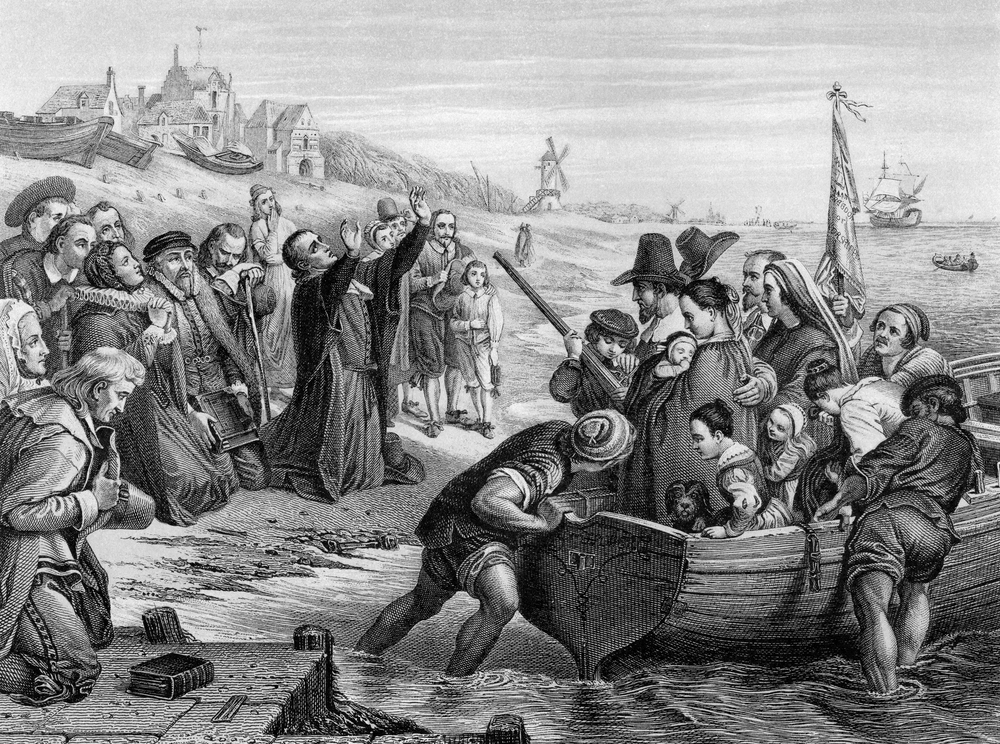Today’s Onerous is Yesterday’s Luxury
In September 1620, my ancestors departed from Plymouth, England on the Mayflower to establish a new home in the New World, some 3,300 miles away. They would ultimately land in November at what is now Plymouth, Massachusetts and immediately faced a harsh winter. About 400 years later, I also undertook a long journey to begin a new life, moving from Massachusetts to Louisiana, approximately 1,500 miles. These two trips could not have been more different.
My drive to Louisiana was long. According to Google Maps, it would be approximately 24 hours of driving time. To ease the burden, I decided to do three 8-hour days: Massachusetts to Maryland (Day 1), Maryland to Tennessee (Day 2), and Tennessee to Louisiana (Day 3). At the end of each day, I was exhausted. I’d have a quick dinner and fall asleep in my hotel room. Furthermore, severe thunderstorms forced me to end my planned Day 1 trip in Pennsylvania, leading to a longer Day 2. The temperature steadily rose as I headed further South, hitting the 90s by the time I got to Mississippi. Naturally, this made the times I had to leave my air- conditioned car unpleasant. Eventually, I made it to Louisiana safe and sound. Needless to say, this trip was onerous.
Or was it? Compared to the Pilgrims, I traveled in the lap of luxury. It took them 66 days (about 10 weeks) to make their journey. Adjusting for mileage, it would take them about 10 times the amount of time it took me to journey the same length (even longer than that, really. Over-land travel was much slower than sea travel). I was untouched by the weather outside: no matter how hot it was outside, the interior of my car was comfortable thanks to the air conditioning. I was not cramped at all. The Mayflower had approximately 78 cubic feet of living space per person. My car, on the other hand, has about 106 cubic feet, and I was the only one in it. All my food and water were safe and sanitary; no need to worry about rot or disease. I spent each night in a safe hotel room, not having to worry about the elements or whether a rogue wave would sink me. I had a GPS to ensure I wouldn’t get lost. I could listen to anything I wanted (The Crown of Swords, Book VII of the Wheel of Time series, by Robert Jordan), rather than having to listen to others’ conversations. My ancestors would have loved those accommodations.
The point here is that technological advancement turns luxuries into commonplace necessities and eliminates the onerous. Outside of the poorest of the poor, a trip like the Pilgrims is unthinkable in the world today. The world is a much better, safer, and cleaner place than it once was.
Of course, one could object and say that such a comparison between 400 years is true but irrelevant. Things may be better than 400 years ago, but certainly not better than the 70s or 80s. But that, certainly, is just as incorrect. GMU economist Donald Boudreaux often tells stories of waiting in gas lines in the 70s. Don described the heat and humidity as “suffocating,” and that is an apt word.

The picture used here is a screenshot of my weather app for Thibodaux, Louisiana, not too far from New Orleans. One cannot breathe easily when outside. Cars at that time had no air conditioning. If, God forbid, American politicians were foolish enough to reimpose price controls on gasoline and create another shortage like the 70s, at least waiting in line would be (marginally) less onerous given we have air conditioning.
Humans love to complain. It seems to be a natural instinct as many observers notice how dissatisfied we become with improvements and how long we linger on deterioration. A great antidote to this pessimism is to step back and appreciate how bad things once were and how great things will potentially be.
Jon Murphy is an assistant professor of economics at Nicholls State University.

